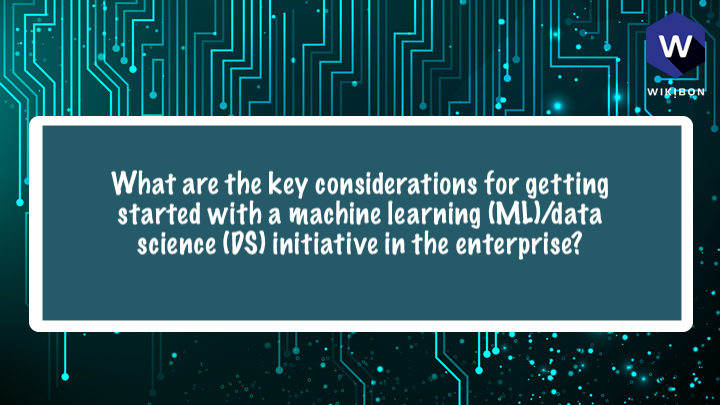
jameskobielus40



















Q2: When building out a data science organization, what skills and roles are required? https://www.crowdchat.net/s/65vgs

Patrick Osborne
a mix of roles, many of them new to the IT landscape

Mike Leone
The overarching theme I see is that organizations immediately jump to the mind set of "we need a data scientist." You should look for smart generalists with data versatility, as opposed to specialists in the beginning.

Patrick Osborne
CDO, Data Science, Data Engineer, DevOps, Cloud Engineer

Frederic Van Haren
You need people that understand how AI works at a high level (engineers, math or statistics background)

Jason Schroedl
Data science is a team sport - multiple roles are required (data scientists and analysts, data engineers, ML developers, ML architects, DevOps and operations teams)

Frederic Van Haren
Data visualization. People that can visualize data in charts and graphs.

Storage Godfather (HPEStorageGuy)
And how do you find people with that skill set? CS and applied mathematics double majors are in short supply!

Jason Schroedl
Data science teams don’t want to worry about the underlying infrastructure systems, configuration, and operations – they just want the ability to quickly get access to the tools and data they need to develop their models, continuously iterate, build their data pipelines

Frederic Van Haren
Business understanding: how to use AI and what it can do for your business

Patrick Osborne
Organizing across traditional functional boundaries and creating a new team structure

Abdul Matheen Raza
multiple roles. Data Engineers, Data Scientists, ML Architects, Data Operations.

NandaVijaydev
First and foremost, a person who is a great listener and is able to break the problem/request into smaller actionable statements in a simple spoken language

Patrick Osborne
@jameskobielusThis is why HPE is investing in universities to train this new skill http://www.uh.edu/data-science-institute/

Storage Godfather (HPEStorageGuy)
@CalvinZito Not the same skill set as an "HPEStorageGuy", but I'm learning.

Frederic Van Haren
@CalvinZito you need some "training"

Hande Sahin-Bahceci
Combination of business, IT, developer, data skills and security members.. Diversity in roles and skills will be key to address biases.

Storage Godfather (HPEStorageGuy)
@fvha As a starting point, I grabbed a "Big Data and AI" Great Courses DVD set from my public library. I didn't make it very far!

NandaVijaydev
Then a team that can translate English language requests to more programmable tasks, visualization experts who can help visualize the inputs and outputs to specific tasks, Data Scientists to build models to represent the data and possible outcomes.

NandaVijaydev
@fvha This is the key. Not all Data Scientists can be SMEs is all areas. But a keen observation and effective communication with business users makes them better suited for the job

Hande Sahin-Bahceci
Right skills may be outside the organisation. There are experts with AI project, use case experience and technical depth that can complement data teams #crowchat @HPE_TechSvcs














